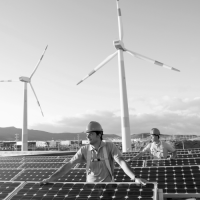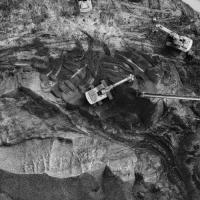- OPEN TRAINING PROGRAMMES
MCE's 3 Leadership Areas
Skills to manage yourself & your work
(Leading Self)
- Communication & PresentationCommunication & Presentation
- Influencing & NegotiationInfluencing & Negotiation
- Conflict ManagementConflict Management
- Time & Stress ManagementTime & Stress Management
- Analytics & Strategic ThinkingAnalytics & Strategic Thinking
Skills to lead & motivate others
(Leading Others)
- LeadershipLeadership
- Women's Leadership CentreWomen's Leadership Centre
- Managing People & TeamsManaging People & Teams
- Diversity, Equity and InclusionDiversity, Equity and Inclusion
- Managing ChangeManaging Change
Skills to drive organisational success
(Leading Business)
- AMA-CPM® CertificationAMA-CPM® Certification
- Business Strategy & PlanningBusiness Strategy & Planning
- Finance & ControllingFinance & Controlling
- Project ManagementProject Management
- AI & Digital TransformationAI & Digital Transformation
- Sales & MarketingSales & Marketing
- Innovation & AgilityInnovation & Agility
- HR & Talent ManagementHR & Talent Management
Available in Various Cities Throughout EMEA
SEE ALLAvailable as Public Programmes or Self-Paced OnDemand Courses
- Live OnlineLive Online Live, interactive sessions for busy international schedules.
- OnDemand LibraryOnDemand Library Self-paced e-learning courses
Discover MCE Programmes For Your Industry
- Materials & MiningMaterials & Mining
- Government & International OrganizationsGovernment & International Organizations
- BankingBanking
Find the Right Learning Solutions For Your Current Or Future Role
More Options
- OnDemand CoursesOnDemand Courses
- MCE WeeksMCE Weeks
- MCE EssentialsMCE Essentials
- Virtual Reality ModulesVirtual Reality Modules
- Women's Leadership CentreWomen's Leadership Centre
- What Leadership is ForBook PromoWhat Leadership is For
Search your programme by
Other Options
- OnDemand CoursesOnDemand Courses
- MCE WeeksMCE Weeks
- MCE EssentialsMCE Essentials
- Virtual Reality ModulesVirtual Reality Modules
- Women's Leadership CentreWomen's Leadership Centre
- What Leadership is ForBook PromoWhat Leadership is For
-
- MINI MBA’S
MCE Mini MBA
Moving from Technical Expert to International Business Manager.
Learning Options
- 5 days in person
- 12 online sessions
Next Sessions
- 16 Mar – 20 Mar 2026 (Milan)
- 23 Mar – 27 Mar 2026 (Vienna)
- 23 Mar – 27 Mar 2026 (Helsinki)
- 23 Mar – 27 Mar 2026 (Istanbul)
Mini MBA's tailored to your Industry
MCE Mini MBA
Develop your all-round managerial skills in only 5 days or 12 online sessions and boost your management career.
- Learn moreLearn more
Mini MBA's tailored to your Industry
- PharmaceuticalPharmaceutical
- EnergyEnergy
- ChemicalChemical
- MiningMining
- Retail BankingRetail Banking
- Medical DevicesMedical Devices
- COMPANY & TEAM SOLUTIONS
Solutions for your Company & Teams
- MCE's Customized Learning SolutionsMCE's Customized Learning Solutions
- The MCE Approach - Focusing on Your Goals & NeedsThe MCE Approach - Focusing on Your Goals & Needs
- Client StoriesClient Stories
- MCE Services for Your CompanyMCE Services for Your Company
Quicklinks
- Licensing of ProgrammesLicensing of Programmes
- AMA-CPM® Certification
- All Access PassesAll Access Passes
Save up to 50% on your training budget
One annual budget. Flexible use across programmes throughout the year
-
- INSIGHTS
Business Resources
- Download MCE Training GuideHighlightDownload MCE Training Guide
- Essential Skills and Industries InsightsEssential Skills and Industries Insights
- Artificial Intelligence (AI)Artificial Intelligence (AI)
- LeadershipLeadership
- Life Sciences IndustryLife Sciences Industry
- Women's Leadership CentreWomen's Leadership Centre
- and more...and more...
- Business ArticlesBusiness Articles
- Research & WhitepapersResearch & Whitepapers
Get Our Latest Updates
Subscribe to our email newsletters that highlight our latest research-based articles, products, programmes, and more to help you strengthen your leadership skills.
Building Leadership Capability for an AI-Enabled Organisation
Helping leaders and professionals use AI with confidence, judgment, and responsibility.
-
- OPEN TRAINING PROGRAMMES
MCE's 3 Leadership Areas
Skills to manage yourself & your work
(Leading Self)
- Communication & PresentationCommunication & Presentation
- Influencing & NegotiationInfluencing & Negotiation
- Conflict ManagementConflict Management
- Time & Stress ManagementTime & Stress Management
- Analytics & Strategic ThinkingAnalytics & Strategic Thinking
Skills to lead & motivate others
(Leading Others)
- LeadershipLeadership
- Women's Leadership CentreWomen's Leadership Centre
- Managing People & TeamsManaging People & Teams
- Diversity, Equity and InclusionDiversity, Equity and Inclusion
- Managing ChangeManaging Change
Skills to drive organisational success
(Leading Business)
- AMA-CPM® CertificationAMA-CPM® Certification
- Business Strategy & PlanningBusiness Strategy & Planning
- Finance & ControllingFinance & Controlling
- Project ManagementProject Management
- AI & Digital TransformationAI & Digital Transformation
- Sales & MarketingSales & Marketing
- Innovation & AgilityInnovation & Agility
- HR & Talent ManagementHR & Talent Management
Available in Various Cities Throughout EMEA
SEE ALLAvailable as Public Programmes or Self-Paced OnDemand Courses
- Live OnlineLive Online Live, interactive sessions for busy international schedules.
- OnDemand LibraryOnDemand Library Self-paced e-learning courses
Discover MCE Programmes For Your Industry
- Materials & MiningMaterials & Mining
- Government & International OrganizationsGovernment & International Organizations
- BankingBanking
Find the Right Learning Solutions For Your Current Or Future Role
More Options
- OnDemand CoursesOnDemand Courses
- MCE WeeksMCE Weeks
- MCE EssentialsMCE Essentials
- Virtual Reality ModulesVirtual Reality Modules
- Women's Leadership CentreWomen's Leadership Centre
- What Leadership is ForBook PromoWhat Leadership is For
Search your programme by
Other Options
- OnDemand CoursesOnDemand Courses
- MCE WeeksMCE Weeks
- MCE EssentialsMCE Essentials
- Virtual Reality ModulesVirtual Reality Modules
- Women's Leadership CentreWomen's Leadership Centre
- What Leadership is ForBook PromoWhat Leadership is For
-
- MINI MBA’S
MCE Mini MBA
Moving from Technical Expert to International Business Manager.
Learning Options
- 5 days in person
- 12 online sessions
Next Sessions
- 16 Mar – 20 Mar 2026 (Milan)
- 23 Mar – 27 Mar 2026 (Vienna)
- 23 Mar – 27 Mar 2026 (Helsinki)
- 23 Mar – 27 Mar 2026 (Istanbul)
Mini MBA's tailored to your Industry
MCE Mini MBA
Develop your all-round managerial skills in only 5 days or 12 online sessions and boost your management career.
- Learn moreLearn more
Mini MBA's tailored to your Industry
- PharmaceuticalPharmaceutical
- EnergyEnergy
- ChemicalChemical
- MiningMining
- Retail BankingRetail Banking
- Medical DevicesMedical Devices
- COMPANY & TEAM SOLUTIONS
Solutions for your Company & Teams
- MCE's Customized Learning SolutionsMCE's Customized Learning Solutions
- The MCE Approach - Focusing on Your Goals & NeedsThe MCE Approach - Focusing on Your Goals & Needs
- Client StoriesClient Stories
- MCE Services for Your CompanyMCE Services for Your Company
Quicklinks
- Licensing of ProgrammesLicensing of Programmes
- AMA-CPM® Certification
- All Access PassesAll Access Passes
Save up to 50% on your training budget
One annual budget. Flexible use across programmes throughout the year
-
- INSIGHTS
Business Resources
- Download MCE Training GuideHighlightDownload MCE Training Guide
- Essential Skills and Industries InsightsEssential Skills and Industries Insights
- Artificial Intelligence (AI)Artificial Intelligence (AI)
- LeadershipLeadership
- Life Sciences IndustryLife Sciences Industry
- Women's Leadership CentreWomen's Leadership Centre
- and more...and more...
- Business ArticlesBusiness Articles
- Research & WhitepapersResearch & Whitepapers
Get Our Latest Updates
Subscribe to our email newsletters that highlight our latest research-based articles, products, programmes, and more to help you strengthen your leadership skills.
Building Leadership Capability for an AI-Enabled Organisation
Helping leaders and professionals use AI with confidence, judgment, and responsibility.
-
- OPEN TRAINING PROGRAMMES
MCE's 3 Leadership Areas
Skills to manage yourself & your work
(Leading Self)
- Communication & PresentationCommunication & Presentation
- Influencing & NegotiationInfluencing & Negotiation
- Conflict ManagementConflict Management
- Time & Stress ManagementTime & Stress Management
- Analytics & Strategic ThinkingAnalytics & Strategic Thinking
Skills to lead & motivate others
(Leading Others)
- LeadershipLeadership
- Women's Leadership CentreWomen's Leadership Centre
- Managing People & TeamsManaging People & Teams
- Diversity, Equity and InclusionDiversity, Equity and Inclusion
- Managing ChangeManaging Change
Skills to drive organisational success
(Leading Business)
- AMA-CPM® CertificationAMA-CPM® Certification
- Business Strategy & PlanningBusiness Strategy & Planning
- Finance & ControllingFinance & Controlling
- Project ManagementProject Management
- AI & Digital TransformationAI & Digital Transformation
- Sales & MarketingSales & Marketing
- Innovation & AgilityInnovation & Agility
- HR & Talent ManagementHR & Talent Management
Available in Various Cities Throughout EMEA
SEE ALLAvailable as Public Programmes or Self-Paced OnDemand Courses
- Live OnlineLive Online Live, interactive sessions for busy international schedules.
- OnDemand LibraryOnDemand Library Self-paced e-learning courses
Discover MCE Programmes For Your Industry
- Materials & MiningMaterials & Mining
- Government & International OrganizationsGovernment & International Organizations
- BankingBanking
Find the Right Learning Solutions For Your Current Or Future Role
More Options
- OnDemand CoursesOnDemand Courses
- MCE WeeksMCE Weeks
- MCE EssentialsMCE Essentials
- Virtual Reality ModulesVirtual Reality Modules
- Women's Leadership CentreWomen's Leadership Centre
- What Leadership is ForBook PromoWhat Leadership is For
Search your programme by
Other Options
- OnDemand CoursesOnDemand Courses
- MCE WeeksMCE Weeks
- MCE EssentialsMCE Essentials
- Virtual Reality ModulesVirtual Reality Modules
- Women's Leadership CentreWomen's Leadership Centre
- What Leadership is ForBook PromoWhat Leadership is For
-
- MINI MBA’S
MCE Mini MBA
Moving from Technical Expert to International Business Manager.
Learning Options
- 5 days in person
- 12 online sessions
Next Sessions
- 16 Mar – 20 Mar 2026 (Milan)
- 23 Mar – 27 Mar 2026 (Vienna)
- 23 Mar – 27 Mar 2026 (Helsinki)
- 23 Mar – 27 Mar 2026 (Istanbul)
Mini MBA's tailored to your Industry
MCE Mini MBA
Develop your all-round managerial skills in only 5 days or 12 online sessions and boost your management career.
- Learn moreLearn more
Mini MBA's tailored to your Industry
- PharmaceuticalPharmaceutical
- EnergyEnergy
- ChemicalChemical
- MiningMining
- Retail BankingRetail Banking
- Medical DevicesMedical Devices
- COMPANY & TEAM SOLUTIONS
Solutions for your Company & Teams
- MCE's Customized Learning SolutionsMCE's Customized Learning Solutions
- The MCE Approach - Focusing on Your Goals & NeedsThe MCE Approach - Focusing on Your Goals & Needs
- Client StoriesClient Stories
- MCE Services for Your CompanyMCE Services for Your Company
Quicklinks
- Licensing of ProgrammesLicensing of Programmes
- AMA-CPM® Certification
- All Access PassesAll Access Passes
Save up to 50% on your training budget
One annual budget. Flexible use across programmes throughout the year
-
- INSIGHTS
Business Resources
- Download MCE Training GuideHighlightDownload MCE Training Guide
- Essential Skills and Industries InsightsEssential Skills and Industries Insights
- Artificial Intelligence (AI)Artificial Intelligence (AI)
- LeadershipLeadership
- Life Sciences IndustryLife Sciences Industry
- Women's Leadership CentreWomen's Leadership Centre
- and more...and more...
- Business ArticlesBusiness Articles
- Research & WhitepapersResearch & Whitepapers
Get Our Latest Updates
Subscribe to our email newsletters that highlight our latest research-based articles, products, programmes, and more to help you strengthen your leadership skills.
Building Leadership Capability for an AI-Enabled Organisation
Helping leaders and professionals use AI with confidence, judgment, and responsibility.
-
































 The four mega trends below will greatly influence the O&G Industry:
The four mega trends below will greatly influence the O&G Industry: Globally today, about 90% of the energy supply comes from fossil fuels and 10% is nuclear.
Globally today, about 90% of the energy supply comes from fossil fuels and 10% is nuclear. Following Exxon Valdez, Shell Brent Spar, and more recently BP’s Gulf of Mexico incidents, the public has been left scared. The world is now much more critical of the oil industry.
Following Exxon Valdez, Shell Brent Spar, and more recently BP’s Gulf of Mexico incidents, the public has been left scared. The world is now much more critical of the oil industry.

